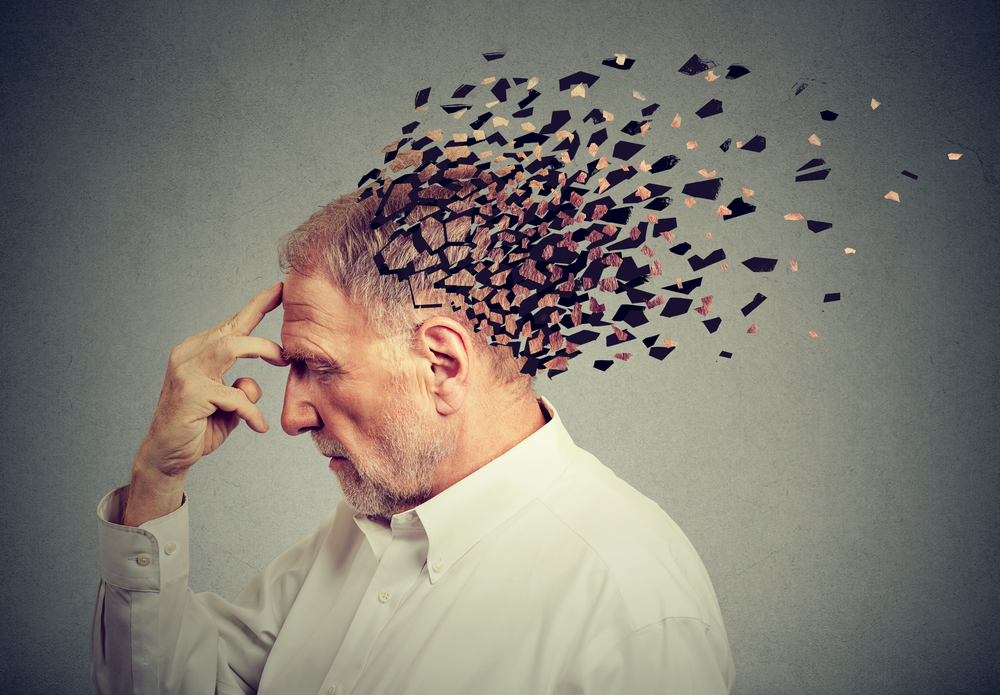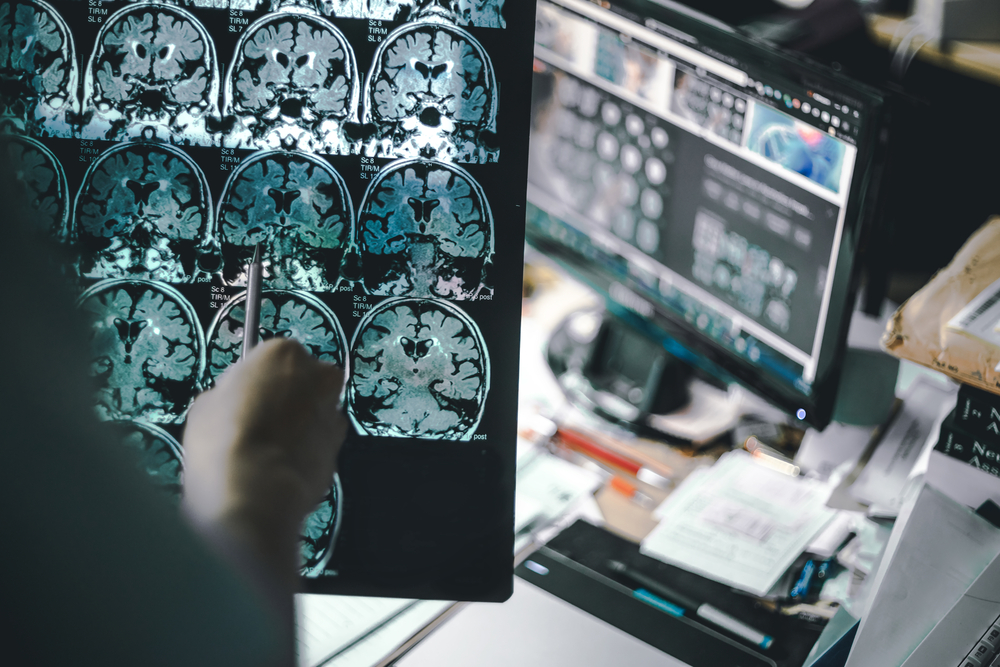Professor Reveals: "For the First Time in a Decade, Innovations in Dementia"
Professor Yehudit Aharon Peretz, who has spent decades researching dementia, unveils new guidelines for diagnosing, existing treatments, and breakthroughs in the field. "For the first time in a decade, we've released new guidelines, as the previous ones are no longer relevant." What are the updates?
 In the frame: Professor Yehudit Aharon Peretz (Illustration photo: shutterstock)
In the frame: Professor Yehudit Aharon Peretz (Illustration photo: shutterstock)Dementia. What a harsh word! It carries with it so many depressing associations, and a multitude of challenges and suffering for the elderly and their families. Interestingly, when this word is mentioned in the ears of Professor Yehudit Aharon Peretz, a neurologist at the Brain Stroke and Cognition Institute at Rambam Medical Center and Chair of the Scientific Advisory Council of 'Amda' Association, she claims that recent years have seen tremendous progress in the research and understanding of dementia syndromes and in the development of treatment approaches aimed at improving patients' conditions.
"Even today, it is a complex disease that often cannot be cured, but the innovation is that we know much more than we used to, about topics like preventing dementia, diagnosing and treating diseases that cause dementia, and identifying treatable dementias and cures," she encourages.
 (Photo: shutterstock)
(Photo: shutterstock)An Association for Patients
For years, Professor Yehudit Aharon Peretz has been engaged in brain research, specializing in diseases causing cognitive-behavioral decline and dementia. She founded the Cognitive Neurology Institute at Rambam Hospital, which remains one of the largest institutes in the country dealing with this field. "Although dementia and cognitive decline seem to belong to older age, it is not always the case," she emphasizes, "Over the years, our center has seen many young people dealing with cognitive decline following head injuries, tumors, and other neurological diseases. We also diagnose and treat attention disorders in adults, and sometimes complaints about memory decline in older age are due to attention disorders, not necessarily degenerative diseases."
After decades of experience, Professor Aharon Peretz was recently appointed Chair of the Scientific Advisory Council of the 'Amdah' Association, whose goals include: creating an information network and emotional support for the families of patients, developing a supportive service network for patients and their families, public outreach regarding dementia manifestations and the challenges faced by dementia caregivers, recognizing patients' and families' social and legal rights, influencing decision-makers to expand service offerings and advance patients' and families' rights, and promoting research on the disease.
Recently, a new clinical guideline booklet for the treatment and prevention of dementia was published with the participation of the Amda Association and professional medical associations, including the Geriatrics Society, the Psychiatric Society, the Neurological Society, and the Family Physicians Association, led by Professor Amos Korczyn and Professor Aharon-Peretz.
According to Professor Aharon Peretz, these guide pages are important, reflecting the changes that have occurred in recent years in diagnosing and treating patients suffering from cognitive decline and dementia. These guidelines are intended to determine the manner in which patients will be diagnosed in Israel. The guidelines have been uploaded to the Ministry of Health's website and are being distributed among all physicians treating and accompanying individuals suffering from dementia and cognitive decline, be it family physicians, neurologists, psychiatrists, geriatricians, and other professionals.
News and Developments
What are the innovations in these pages, and how are they different from the guidelines published about a decade ago? Professor Aharon Peretz notes that the current guidelines reflect significant changes that have occurred in medical science concerning the diagnosis and treatment of various dementia-related diseases over the past decade. She further elaborates: "Today we know that dementia is typically caused by a combination of diseases affecting the functioning and structure of brain tissue, which are actually the risk factors for dementia. As a result, cognitive decline and behavioral changes occur, gradually worsening and eventually leading to cognitive impairment at the severity level of dementia.
 (Photo: shutterstock)
(Photo: shutterstock)"Risk factors for dementia include high blood pressure, diabetes, high levels of blood fats, heart diseases and arrhythmias, smoking, lack of physical activity, depression, excessive alcohol consumption, hearing loss, air pollution, and loneliness. If we only knew how to counterbalance these risk factors, we could minimize damage to brain tissue. Currently, doctors believe that about 40% of dementia cases can be prevented through proper management of these risk factors and slowing deterioration in many additional cases.
"In addition to existing treatments for dementia, there are now new treatments, specific for patients diagnosed with Alzheimer's-caused dementia in early disease stages, some still in trial phases. These treatments aren't suitable for all dementia patients, yet it's a growing field with considerable news. We are also more aware of behavioral disorders in dementia and often know how to treat them. It's unsettling when grandpa forgets, but even more so when he accuses his son of stealing keys, acts violently, or dislikes his grandchildren. These are issues we can solve in many cases today.
"There is also a topic that wasn't mentioned in past guidelines concerning legal issues – determining when a young, middle-aged, or elderly dementia patient can make independent decisions, when to appoint a guardian, recommend a continuous power of attorney, or utilize rights for assistance as determined by law, such as through social security, and beyond.
 (Photo: shutterstock)
(Photo: shutterstock)And what about a real treatment for dementia that will prevent its development from the start?
"This is also being worked on in many labs domestically and globally. No preventive treatment for dementia has been found yet, but addressing dementia risk factors is definitely a path to reducing the number of dementia patients, potentially delaying its onset, and alleviating its severity in many others.
"It should be understood that with diseases of this type, even if you delay dementia by three or four years, it’s significant. The patient gains additional time to spend with children and grandchildren, and the family gets to be with them and enjoy them. Though not a cure, it can help the patient and caregivers experience fewer unpleasant symptoms. If we only succeed in this, it is substantial, and we are definitely progressing towards that."
Professor Aharon Peretz wants to take this opportunity to clarify: "Some families feel ashamed to admit that their father, mother, grandfather, or grandmother suffers from dementia, sometimes regarding it, unfortunately, as akin to a mental illness. They hide the patient or ignore them. It’s important to emphasize that late diagnosis can harm both the patient and those taking care of them. The treatments I mentioned will be less effective, and the handling could become much more challenging and burdensome. If we don't talk about dementia, it won't disappear, but if we're aware of it, we can often ease the condition."

